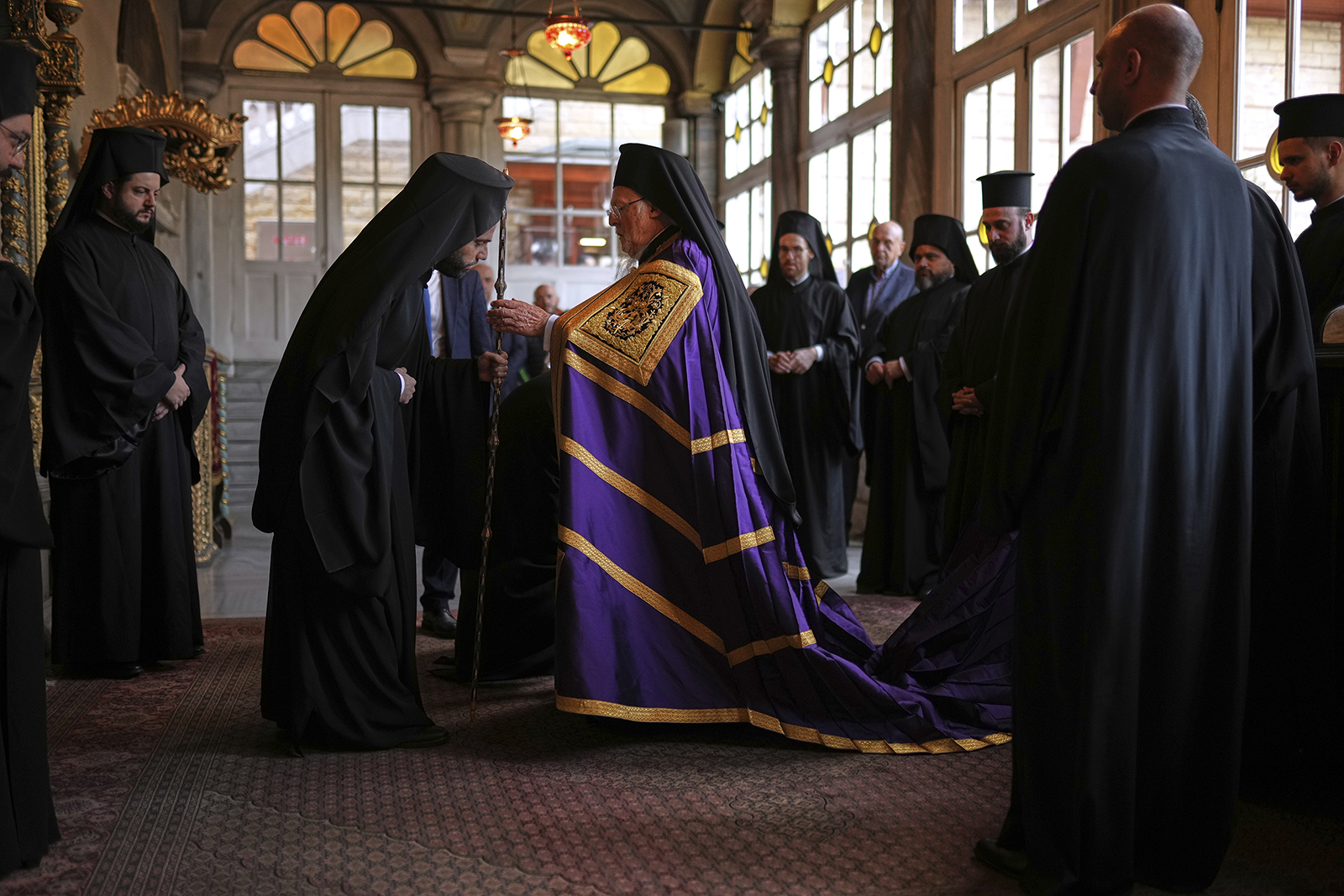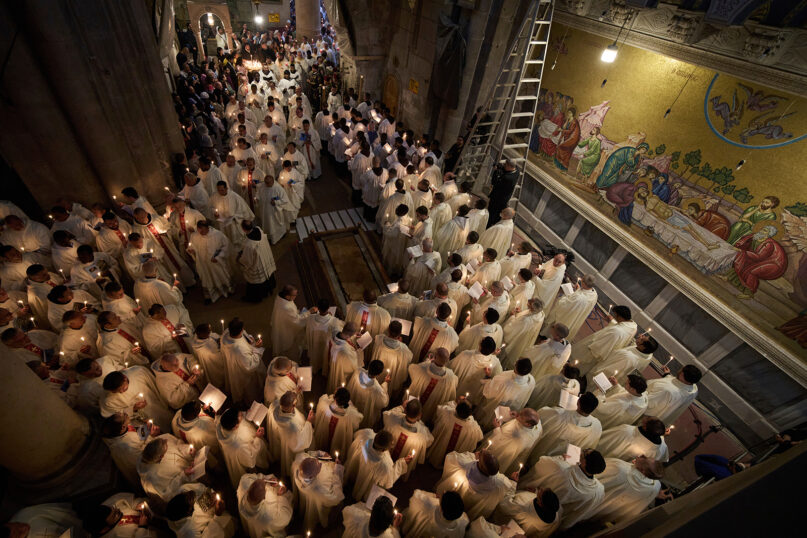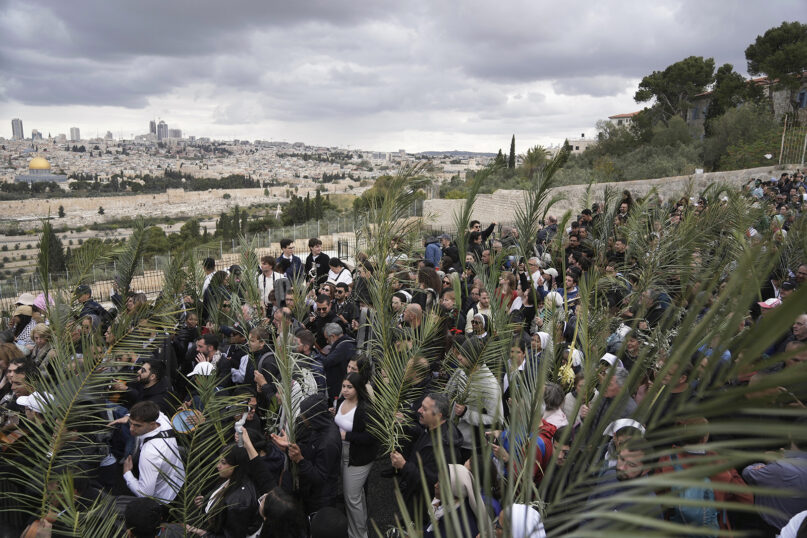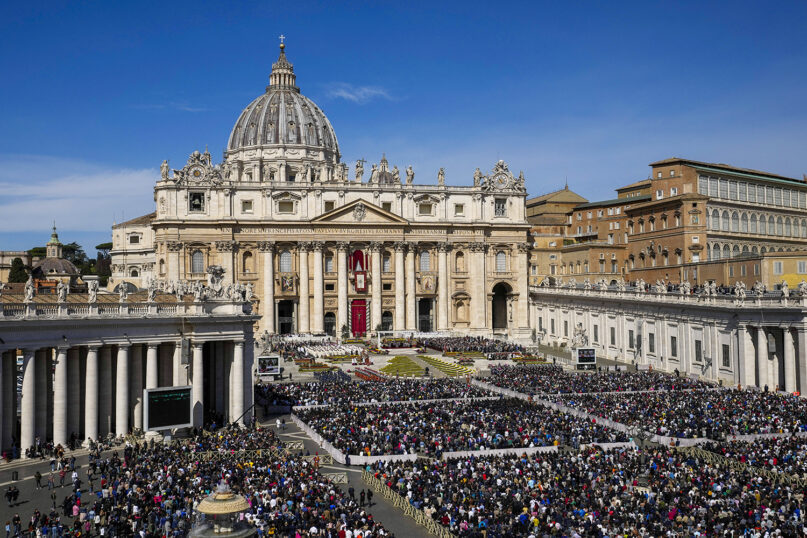
ISTANBUL (RNS) — This year, Eastern and Western churches will celebrate Easter on the same date — an occurrence that is increasingly rare but that some seek to make permanent.
The dates lined up in 2017 and often do about once a decade. But as the years go by, the calendars used by churches — the Gregorian calendar by Western Catholics and Protestants and the Julian calendar by Eastern Orthodox churches — continue to diverge. If all things stay the same, the coincidence will happen a few more times in the 21st century and then not again for nearly a millennium.
Many church leaders, especially in countries with diverse Christian communities, are viewing the joint date as an intercommunal celebration.
“For the Holy Great Church of Christ, one source of such resurrectional joy is also found this year in the common celebration of Easter by the entire Christian world,” Ecumenical Patriarch of Constantinople Bartholomew I, the spiritual leader of Eastern Orthodox Christians across the world, said in his Holy Week Encyclical on Monday (April 14).
Though Christians today make up less than half of a percentage of Turkey’s population, the Christian community of Istanbul includes denominations with diverse theological, cultural and linguistic heritages, including Greek Orthodox, Armenian, Syriac, Catholic and Protestant.
“The life of the church in Istanbul is made up of connections with other churches. It is not like, for example, in Italy, where you meet only Catholics,” the Rev. Luca Refatti, an Italian-born Dominican pastor in Istanbul, told RNS. “The fact that we are celebrating together, it’s of course, a joy because it is something which is reminding us that we are all the same. We have all the same faith, and we are all belonging to the same family.”

Catholic clergy hold candles during the Washing of the Feet procession at the Church of the Holy Sepulchre, where many Christians believe Jesus was crucified, buried, and rose from the dead, in the Old City of Jerusalem, Thursday, April 17, 2025. (AP Photo/Leo Correa)
However, Refatti said the shared Holy Week is also a logistical challenge in Istanbul, where the city’s dwindling Christian communities have grown accustomed to sharing spaces.
“It poses a little bit of a practical issue when you have a common place where you celebrate,” he said. “Of course, the celebrations are becoming longer, and it is very difficult to fit everything in the same place. … Everything is a little bit busier.”
But in an era and region where religion and politics are frequently intertwined, the joint date can be seen as an opportunity to build solidarity and temper political feuds, said Malkhaz Songulashvili, the metropolitan bishop of the Evangelical Baptist Church of Georgia. He is also senior pastor at Tbilisi’s Peace Cathedral, which focuses on interfaith dialogue.
Songulashvili’s hometown of Tbilisi, the country’s capital, has been wracked by monthslong protests over disputed elections that have dominated Georgia politics. The protests have galvanized but also divided many religious leaders in the Caucasus state, with the large Georgian Orthodox church mostly falling in line with the government, while minority churches have identified more with the opposition.
“In light of this background, having Easter celebrated together between Western and Eastern communities is being seen as a kind of beacon of hope and something positive to hold onto,” Songulashvili said. “It is not for the first time that these days coincide, but it is for the first time that in Georgia we started to think, what can we do together as representatives of different Christian communities to capitalize on this as a symbol of unity?”

Orthodox Christians walk holding palm branches on the evening of Palm Sunday, on the Mount of Olives in Jerusalem’s Old City, Sunday, April 13, 2025. (AP Photo/Mahmoud Illean)
Songulashvili also said the shared holiday offers an opportunity for Christian churches to share an agape meal, meant to evoke the fellowship Jesus shared with his disciples.
“This is this sign and symbol of longing for unity because unity is something that can help us cope with the pressures of this country and this world,” Songulashvili said. “And also, this is something that can help us to survive the turbulence of our age.”
In the Balkans, the joint date is also being viewed by some as an opportunity to mend political divides that have historically fallen along religious lines. For example, in Bosnia, church leaders noted the joint date as an opportunity to set aside differences amid simmering tensions between ethnic groups.
Speaking to Bosnian media, Catholic priest Ljubo Zadrić and Orthodox Abbot Danilo Pavlović urged their respective communities to unite over the gospel and Christ’s teachings during the shared Holy Week and to reject the “narrative of the ’90s,” referencing the brutal conflicts during the breakup of Yugoslavia, especially the Bosnian war.
Although the shared holiday is to become increasingly less common based on the current calendars, some church leaders are moving to make it permanent. Pope Francis in January called for Eastern and Western churches to accept a common date for Easter, declaring the Catholic Church wants to “take a decisive step forward toward unity.”
“What would be really exciting would be to have a common decision made to keep the same date,” Refatti said.

Faithful gather to attend the Catholic Easter Sunday Mass led by Pope Francis in St. Peter’s Square at the Vatican, April 17, 2022. (AP Photo/Alessandra Tarantino)
The pope’s unification call comes during the 1,700th anniversary year of the Council of Nicaea. At the council of early church fathers in 425 A.D., many fundamentals of Christianity were decided, including the divinity of Jesus, the rejection of Arianism and the Easter date — which the council called to be separated from the Jewish festival of Passover and to be universal across the Christian world.
However, the consensus regarding a universal Easter didn’t last. By the 7th century, English and Irish monks popularized their own solar calendar calculations, which spread through Western Europe. In 1582, Pope Gregory XIII’s adoption of the calendar we today call “Gregorian” further solidified the split.
Today, Pope Francis’ call to return to a universal date has been received positively by many Orthodox leaders, including Bartholomew, who called it “integral to fostering Christian unity.”
Other Orthodox leaders have not been as receptive. The Romanian Orthodox Church said in a January statement that “any consultations regarding the date of Easter and potential decisions can only take place within the framework of a future pan-Orthodox forum — a Synod involving all sister Orthodox churches.” The likelihood of such a forum coming to a unanimous decision is slim.
“Given the current fragmentation in the Orthodox world over Ukraine and the frozen relationship between Moscow and Constantinople, any convening of all Orthodox primates at this stage seems nearly impossible,” said Andreja Bogdanovski, a scholar and analyst of Orthodox Christianity, noting that other than the Romanian church’s tepid response, no other Orthodox church has even acknowledged the idea.
Refatti added, “If the Catholic Church would decide to move to the Orthodox date, it’s possible that the Russians would decide to move to the Catholic one just to stress their difference. And we also have to ask, would the Protestants follow the Catholics?”
